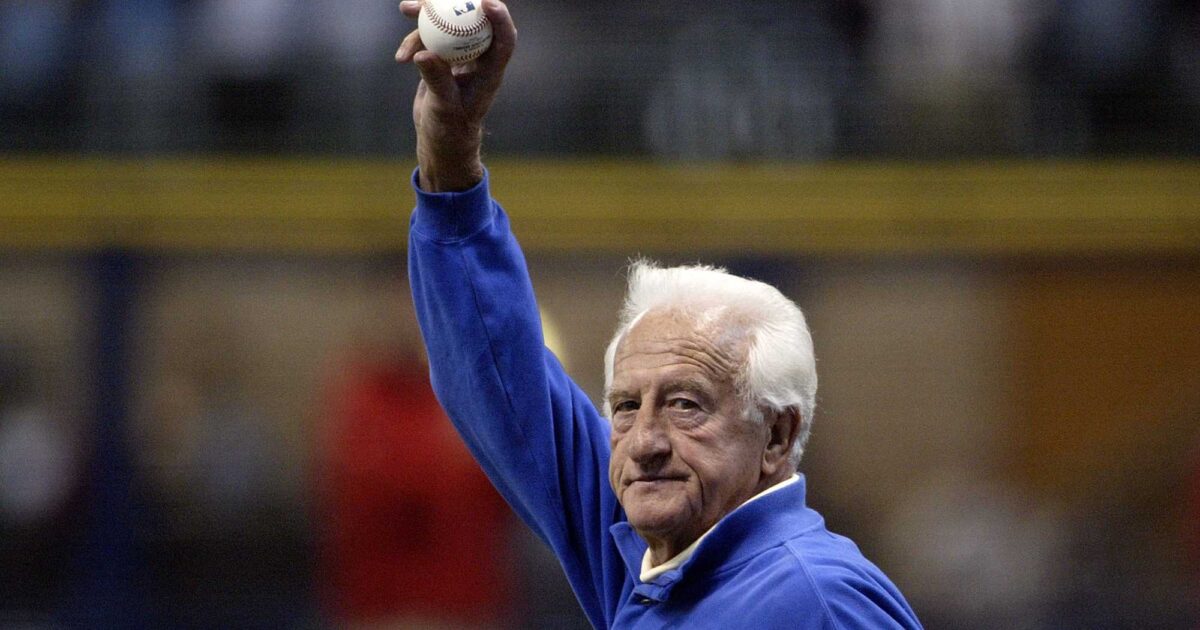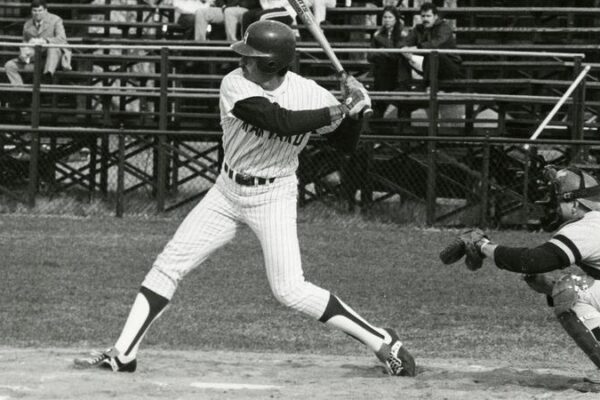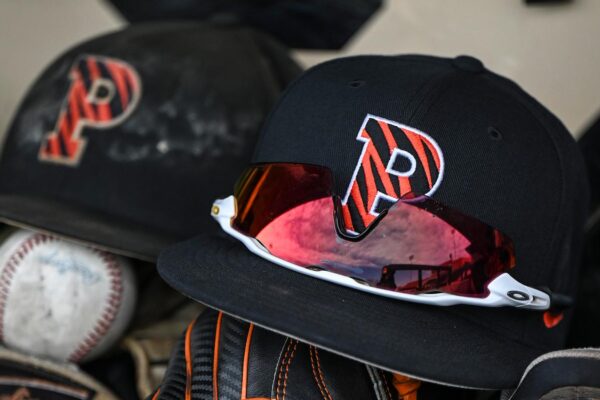A voice for all seasons
Baseball broadcasting expert Curt Smith on why the self-deprecating broadcaster and TV star was a beloved figure to millions.
The following essay was penned by Curt Smith, a senior lecturer in the Department of English at the University of Rochester. His 18 books include Voices of The Game and Pull Up a Chair: The Vin Scully Story. USA Today called him “the voice of authority on baseball broadcasting.” Smith was also a speech writer for President George H.W. Bush, with whom he worked for 14 years.
“The man’s bigger than the game, he’s bigger than the team, he’s bigger than the league, he’s bigger than the sport.” —ABC sports broadcaster Howard Cosell on Bob Uecker
It was 1992, and Major League Baseball needed a new commissioner. “If I had my pick,” Cosell told Bob Uecker, “it would be you.” Overbooked, the man known as “Uke” jested, “Howie, I wish I had time.”
Instead, he became what Sports Illustrated called “the funniest man in broadcasting”—stand-up comedian, movie/TV icon, an analyst on ABC’s Monday Night Baseball for more than a decade, and a Milwaukee Brewers broadcaster for 54 seasons.
Uecker, the man The Tonight Show’s Johnny Carson dubbed “Mr. Baseball,” died on January 16, 2025. He was 100 days shy of his 91st birthday.
His deadpan wit and self-deprecating humor left a listener to wonder what was fiction and what was real. To know him meant grasping the blue-collar culture of his parents: August “Gus” Uecker, originally from Switzerland, and Mary, from Michigan. Years later ABC’s Al Michaels asked Uecker about his dad, a tool and diemaker. “He came from the old country and played soccer,” Uke replied. Did Gus play goalie? “Oh, he didn’t play anything. He just blew up the balls. That’s where I get a lot of my talent.”
Uecker was 19 when in March 1953 the Braves moved from Boston to his native Milwaukee. The catcher began to dream of joining the team but said his first tryout ended when a scout told him to throw a fastball. Uecker replied, “I was.”
Uecker’s ineptitude as a player formed the basis for his celebrity as an announcer—a household name even to those couldn’t tell a sacrifice bunt from a sacrifice fly.
In 1956, he became Milwaukee’s first native to be signed by the franchise, saying, “I signed in a swanky restaurant, Dad was so excited he rolled down the window and the hamburgers fell off its tray.”
The Braves signed Uecker for $3,000. “That bothered my dad,” he confessed, “because he didn’t have that kind of dough. But he eventually scraped it up.”
He finally made the major leagues in 1962, won a World Series with the St. Louis Cardinals in 1964, was traded twice, and retired in 1967 with a paltry .200 batting average. Thereafter, Uecker’s ineptitude as a player formed the basis for his celebrity as an announcer—a household name even to those couldn’t tell a sacrifice bunt from a sacrifice fly.
Uecker was gracious in person, his self-effacement the Real McCoy. Bob stood alone in his impact far beyond baseball’s broadcast booth. His many parts swayed many publics, Uke’s personae plural, his style unique.
The larger nation knew his humor. Once, Cosell barbed that since Uecker was a mere ex-jock, he couldn’t know what truculent meant. “Sure, I do, Howie,” Uke said. “If you had a truck and I borrowed it, that would be a truck you lent.”
Uecker’s versatility helped him become the TV star of ABC’s Mr. Belvedere in the 1980s. He hosted Battle of the Network Stars and played hard-drinking play-by-play man Harry Doyle in the Major League movie series, famously saying of a pitch into the stands, “Juuuust a bit outside!”
About this time, Miller Beer TV spots began starring Uecker and other former athletes. His caricature of “the poor knucklehead who keeps getting locked out of bars and dumped on by fans” gave him, wrote Sports Illustrated, “a cult following.” That image, in turn—the poor soul, the hapless naif—made him perhaps baseball’s most well-known announcer.
Enabling his appeal was a deep respect for the viewer or listener, affinity with baseball’s middle and working class, and an abiding love of the game. An uncommon man had an uncommon heart. At Brewers games, he read fans’ letters on the air—“even ones that say, ‘You stink.’” One letter began, “Planted a new crop.” Another: “Son got married.” Uecker was proud of being a local boy and was rarely tempted to depart.
In 2003, he received the Baseball Hall of Fame Ford C. Frick Award for broadcast excellence. “I am honored,” he said, “but I still think I should have gone in as a player.” As a broadcaster, Uecker never had a Brewers contract, shaking hands with ownership before each season. Nationally, he broadcast three All-Star Games and five World Series.
In a Miller Lite classic commercial, Uecker blustered, “One of the best things about being in the big leagues is getting freebies to the game. Call the front office—bingo!” He heads for a box. Barred, Bob hallucinates, “Oh, I must be in the front row!” Not exactly. “Good seats, eh, buddy?” he soon says from the upper deck.
In 2001, the Brewers moved into Miller Park, where more than 100 obstructed upper-grandstand level seats, each sold for $1, were named “Uecker Seats.” Later a statue of him was unveiled in the last row. Another statue stands outside the park. In a Miller Lite ad, he said, “Ah, those fans, I love ’em.” For more than half a century, the feeling was reciprocal, baseball and Uecker each other’s best friend.













